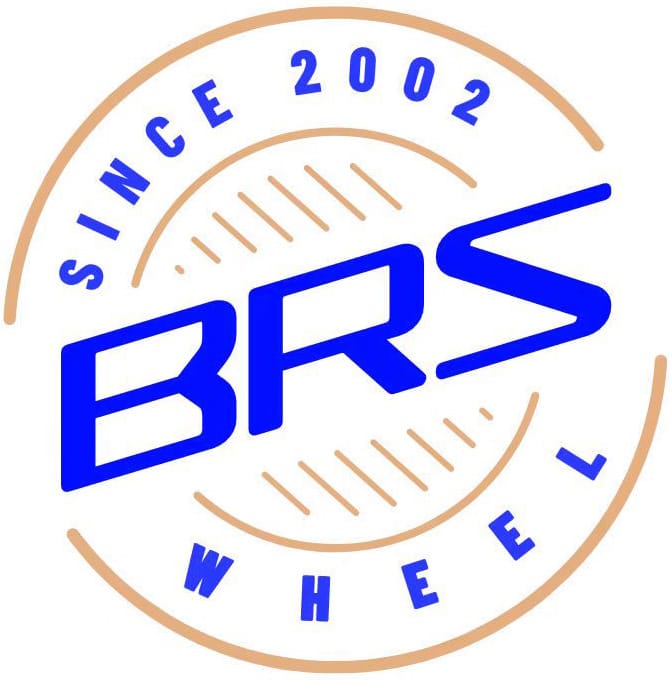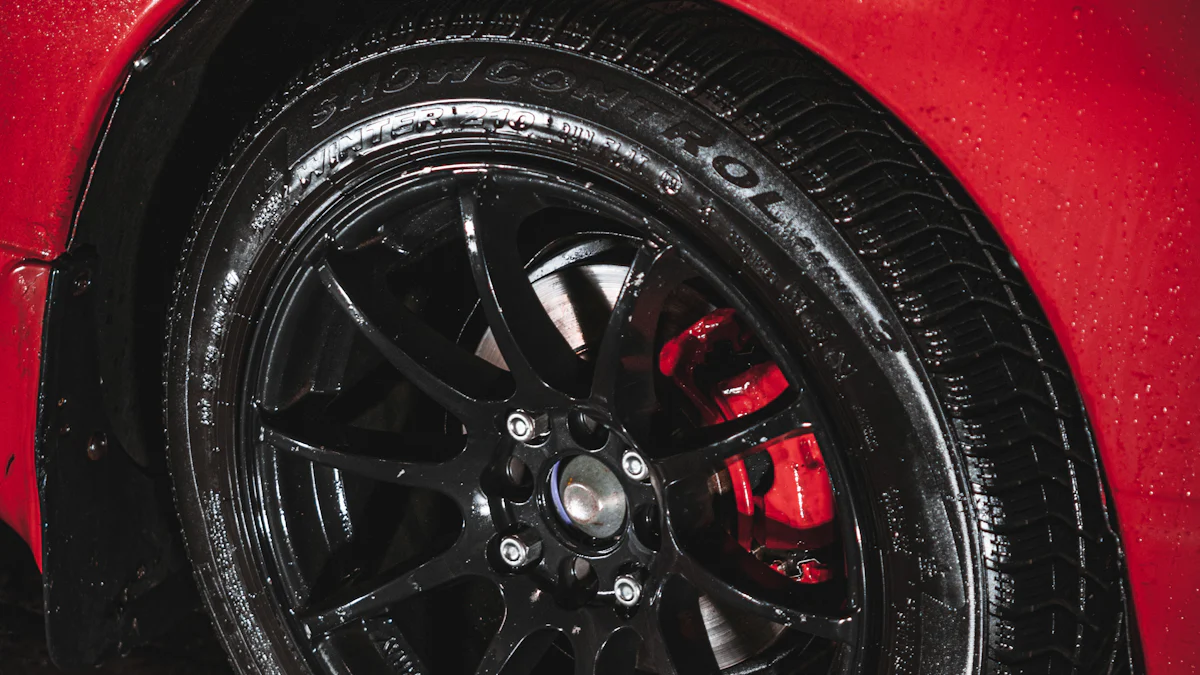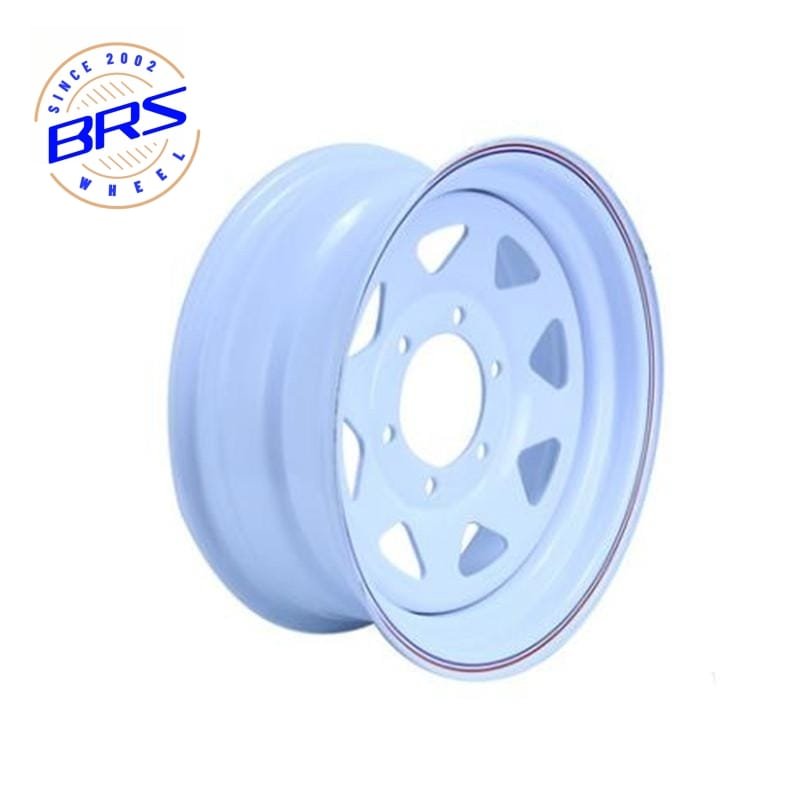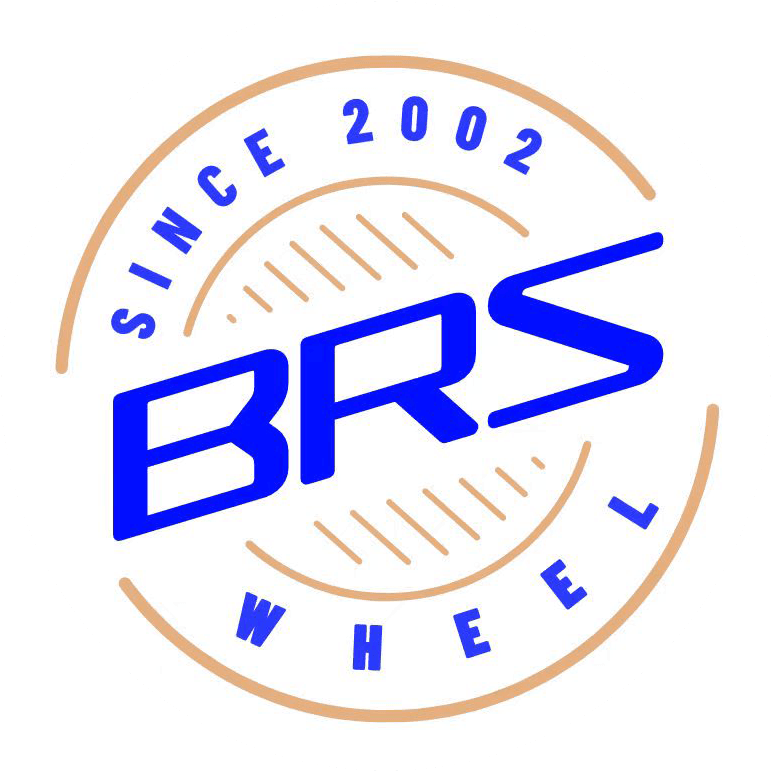
Die Wahl des richtigen Sonderräder für Traktoren sorgt dafür, dass Ihr Traktor seine volle Leistung bringt. Diese Räder können Optimierung der Effizienz für bestimmte Kulturen und BodentypenSie sind für die moderne Landwirtschaft unverzichtbar. Im Jahr 2025 bietet der Online-Kauf von Rädern unübertroffenen Komfort und maßgeschneiderte Lösungen. Sie können auf spezielle landwirtschaftliche Anforderungen eingehen, wie z. B. die Anpassung an neue Kulturen oder die Verbesserung veralteter Maschinen. Online-Plattformen bieten eine nahtlose Kaufberatung und helfen Ihnen, die perfekte Lösung für Ihren Traktor zu finden. In diesem ultimativen Leitfaden erfahren Sie, wie Sie Räder online kaufen und sogar maßgeschneiderte Felgen mit Sicherheit kaufen können. Beginnen Sie noch heute mit dem Online-Kauf von Felgen, um Ihre landwirtschaftlichen Tätigkeiten zu verbessern.
Die Anforderungen an Ihren Traktor verstehen
Bestimmung der richtigen Spezifikationen
Messung von Radgröße und -abmessungen
Um einen effizienten Betrieb Ihres Traktors zu gewährleisten, müssen Sie die Radgröße und -abmessungen genau messen. Prüfen Sie zunächst den Durchmesser und die Breite Ihrer aktuellen Räder. Diese Maße sind normalerweise auf der Seitenwand des Reifens eingeprägt. Wenn Sie unsicher sind, wie Sie die Reifengröße Ihres Traktors ablesen können, achten Sie auf eine Kombination aus Zahlen und Buchstaben, z. B. "18.4-38". Die erste Zahl steht für die Breite in Zoll, während die zweite den Felgendurchmesser angibt. Korrekte Maße verhindern Probleme bei der Montage und gewährleisten die optimale Leistung Ihres Traktors.
Die Wahl des richtigen Materials für eine lange Lebensdauer
Wenn Auswahl der richtigen FelgenAchten Sie auf das Material. Stahlräder bieten eine unübertroffene Festigkeit und Haltbarkeit und sind daher ideal für schwere Aufgaben. Aluminiumräder hingegen sind leicht und korrosionsbeständig, was die Kraftstoffeffizienz verbessern und den Verschleiß Ihres Traktors verringern kann. Wenn Sie häufig in nassen oder korrosiven Umgebungen arbeiten, ist Aluminium möglicherweise die bessere Wahl. Für die meisten landwirtschaftlichen Anwendungen ist Stahl nach wie vor die erste Wahl, da er das hohe Gewicht der Traktorreifen und das unwegsame Gelände gut bewältigen kann.
Sicherstellung der Kompatibilität mit Ihrem Traktor
Passende Räder für Ihr Traktormodell
Nicht alle Räder passen auf jeden Traktor. Sie müssen die Räder anpassen für Ihr spezifisches Traktormodell. Wenn Sie z. B. einen John Deere-Traktor besitzen, sollten Sie sicherstellen, dass die Ersatzfelge mit den Felgen von John Deere-Traktoren kompatibel ist. Die Hersteller stellen oft Kompatibilitätstabellen zur Verfügung, die Ihnen bei der Auswahl des richtigen Radtyps helfen können. Überprüfen Sie immer das Schraubenmuster und die Nabengröße, um Fehlanpassungen zu vermeiden.
Berücksichtigung des Geländes und der betrieblichen Anforderungen
Das Gelände, auf dem Sie arbeiten, spielt eine wichtige Rolle bei der Auswahl der Räder. Maßgeschneiderte Traktorräder können die Leistung je nach Bodentyp und Ernteanforderungen optimieren. Sandige Böden erfordern beispielsweise breitere Reifen, um die Bodenverdichtung zu verringern, während lehmige Böden von schmaleren Reifen für eine bessere Traktion profitieren. Wenn Ihr Traktor in hügeligem Gelände eingesetzt wird, sollten Sie auf Räder achten, die die Stabilität verbessern. Außerdem benötigen ältere Maschinen möglicherweise neue Räder, um die Leistung zu erhalten und Probleme wie Leistungssprünge oder verminderte Traktion zu beheben. Wenn Sie diese Faktoren berücksichtigen, können Sie fundierte Entscheidungen treffen, die die Effizienz und die Ernteerträge verbessern.
Arten von kundenspezifischen Traktorrädern

Materialoptionen für individuelle Räder
Stahlräder: Stärke und Haltbarkeit
Stahlräder sind eine beliebte Wahl für schwere landwirtschaftliche Arbeiten. Dank ihrer robusten Konstruktion können sie unwegsames Gelände und schwere Lasten mit Leichtigkeit bewältigen. Diese Räder sind haltbarer als Aluminium und eignen sich daher ideal für Traktoren, die in schwierigen Umgebungen eingesetzt werden. Stahlräder sind auch preiswerter, was sie zu einer budgetfreundlichen Option für Landwirte macht. Allerdings sind sie schwerer, was die Kraftstoffeffizienz etwas beeinträchtigen kann. Hier können Sie vergleichen, Hier eine kurze Aufschlüsselung von Stahl- und Aluminiumrädern:
| Merkmal | Aluminium-Räder | Stahlfelgen |
|---|---|---|
| Gewicht | Geringes Gewicht, bessere Kraftstoffeffizienz | Schwerer, möglicherweise geringere Kraftstoffeffizienz |
| Korrosionsbeständigkeit | Natürlich rostbeständig | Neigt ohne Behandlung zu Rost |
| Kosten | Im Allgemeinen höhere Kosten | Budgetfreundlicher |
| Dauerhaftigkeit | Eher spröde, weniger geeignet für den rauen Einsatz | Langlebiger, besser für unwegsames Gelände |
| Gestaltungsmöglichkeiten | Erhältlich in verschiedenen kundenspezifischen Ausführungen | Begrenzte Designoptionen |
Achten Sie bei der Auswahl von Stahlrädern darauf, dass sie dem Verschleiß im Laufe der Zeit standhalten. Sie sind eine zuverlässige Wahl für den langfristigen Einsatz in anspruchsvollen landwirtschaftlichen Betrieben.
Aluminium-Räder: Leicht und korrosionsbeständig
Aluminiumräder bieten einzigartige Vorteile für spezifische landwirtschaftliche Anforderungen. Ihr geringes Gewicht verbessert die Kraftstoffeffizienz und verringert die Belastung für Ihren Traktor. Diese Räder sind von Natur aus rostbeständig und eignen sich daher für nasse oder korrosive Umgebungen. Aluminiumräder sind zwar teurer als Stahlräder, erfordern aber weniger Wartung und sind in verschiedenen Sonderausführungen erhältlich. Allerdings sind sie bei schweren Lasten oder rauen Bedingungen möglicherweise nicht so leistungsfähig. Für leichtere Aufgaben oder Traktoren, die in weniger anspruchsvollem Gelände eingesetzt werden, können Aluminiumräder eine praktische Wahl sein.
Spezialisierte Räder für spezifische Anwendungen
Reihenkulturenräder für die Präzisionslandwirtschaft
Räder für Reihenkulturen sind für die Anforderungen der Präzisionslandwirtschaft konzipiert. Diese Räder Reduzierung der BodenverdichtungDies trägt zum Schutz Ihrer Pflanzen und zur Erhaltung der Bodengesundheit bei. Sie bieten auch eine bessere Traktion und Fahrqualität und sorgen für einen reibungslosen Betrieb während des Pflanzens und Erntens. Mit den Rädern für Reihenkulturen können Sie effizient zwischen den Reihen arbeiten, ohne die Reifenspuren zu beschädigen. Ihre Flexibilität macht sie zu einer wertvollen Ergänzung für Ihre landwirtschaftlichen Geräte, insbesondere bei Aufgaben, die Genauigkeit und Sorgfalt erfordern.
Zwei Räder für schwere Aufgaben
Doppelräder sind für schwere landwirtschaftliche Arbeiten unerlässlich. Sie verteilen das Gewicht des Traktors auf eine größere Fläche, Reduzierung des Bodendrucks und Minimierung der Bodenverdichtung. Diese Räder verbessern die Traktion, indem sie die Aufstandsfläche der Reifen vergrößern, was besonders bei nassen oder losen Bedingungen nützlich ist. Die Doppelräder verbessern auch die Stabilität auf unebenem Gelände und verhindern ein Umkippen des Traktors. Dank ihrer Anpassungsfähigkeit eignen sie sich für verschiedene saisonale Aufgaben, wie z. B. Pflanzung oder Bodenbearbeitung. Wenn Ihre Arbeiten zusätzliche Leistung und Stabilität erfordern, sind Zwillingsräder eine ausgezeichnete Wahl.
Wie Sie den richtigen Verkäufer auswählen
Identifizierung seriöser Online-Verkäufer
Überprüfung von Bewertungen und Kundenfeedback
Wenn Sie Räder online kaufen, Bewertungen und Kundenfeedback bieten wertvolle Einblicke. Suchen Sie nach Online-Händlern mit hohen Bewertungen und positiven Erfahrungsberichten. Diese Bewertungen heben oft die Qualität der Spezialtraktorräder und die Zuverlässigkeit des Verkäufers hervor. Achten Sie auf Kommentare zu Lieferzeiten, Produktgenauigkeit und Kundenservice. Ein seriöser Händler wird immer wieder für seine Professionalität und Produktqualität gelobt. Vermeiden Sie Verkäufer mit häufigen Beschwerden über verspätete Lieferungen oder schlechte Kommunikation.
Überprüfung von Zertifizierungen und Akkreditierungen
Zertifizierungen und Akkreditierungen helfen Ihnen bei der Auswahl eines seriösen Verkäufers. Suchen Sie nach Verkäufern, die Industriestandards erfüllen, wie z. B. die IATF 16949-Zertifizierung. Diese Zertifizierung gewährleistet, dass der Verkäufer strenge Qualitätskontrollmaßnahmen einhält. Verkäufer mit anerkannten Akkreditierungen zeigen, dass sie sich für die Bereitstellung langlebiger und zuverlässiger Produkte einsetzen. Vergewissern Sie sich immer auf der Website des Verkäufers oder durch Kontaktaufnahme mit dem Support-Team über diese Referenzen. Auf diese Weise können Sie sicherstellen, dass Sie den richtigen Radtyp für Ihren Traktor wählen, ohne Kompromisse bei der Qualität einzugehen.
Bewertung von Verkäuferrichtlinien und Support
Gewährleistungen und Garantien verstehen
Gewährleistungen und Garantien schützen Ihre Investition. Prüfen Sie vor dem Kauf die Angaben des Verkäufers Garantierichtlinien. Viele seriöse Händler bieten Garantien an, die Mängel oder Passformprobleme abdecken. Zum Beispiel eine 5 Jahre Garantie mit Einbaugarantie sorgt für Seelenfrieden. Mit dieser Art der Absicherung können Sie alle Probleme ohne zusätzliche Kosten beheben. Vergewissern Sie sich vor dem Kauf immer über die Dauer der Garantie und deren Umfang.
| Dauer der Garantie | Art der Bürgschaft |
|---|---|
| 5-Jahres-Garantie | Garantierte Passgenauigkeit |
Überprüfung der Rückgabe- und Umtauschbestimmungen
Die Rückgabe- und Umtauschbestimmungen sind von entscheidender Bedeutung, wenn Sie lernen, wie Sie Laufräder online kaufen. Eine klare und flexible Regelung stellt sicher, dass Sie Probleme lösen können, wenn die Räder nicht Ihren Erwartungen entsprechen. Prüfen Sie, ob der Verkäufer eine kostenlose Rückgabe oder einen Umtausch für falsche oder beschädigte Artikel anbietet. Lesen Sie die Bedingungen sorgfältig durch, um den Zeitrahmen und die Bedingungen für die Rückgabe zu verstehen. Ein Verkäufer mit kundenfreundlichen Bedingungen zeigt, dass er sich für Ihre Zufriedenheit einsetzt. Dieser Schritt vervollständigt Ihren Einkaufsführer und sorgt für ein reibungsloses Einkaufserlebnis.
Bewertung von Qualität und Passform
Prüfung der Produktqualität
Durchsicht detaillierter Produktbeschreibungen
Wenn Sie Räder für Spezialtraktoren online kaufen, sollten Sie immer damit beginnen die Überprüfung der Produktbeschreibungen sorgfältig. Diese Beschreibungen enthalten wichtige Details über das Material, die Größe und die Kompatibilität der Räder. Achten Sie auf Angaben wie Durchmesser, Breite und Lochbild. Prüfen Sie, ob der Verkäufer die Tragfähigkeit und Haltbarkeit des Rades erwähnt. Eine ausführliche Beschreibung zeigt oft, dass der Verkäufer um Transparenz bemüht ist. Wenn Ihnen vage oder unvollständige Angaben auffallen, wenden Sie sich an den Verkäufer, um eine Klärung herbeizuführen. Dieser Schritt stellt sicher, dass Sie genau wissen, was Sie kaufen.
Anforderung von Bildern oder Videos zur Überprüfung
Bilder und Videos können Ihnen helfen, die Qualität der Räder zu überprüfen, bevor Sie einen Kauf tätigen. Fordern Sie hochauflösende Fotos an, die das Rad aus mehreren Blickwinkeln zeigen. Auch Videos, die die Eigenschaften des Rades oder den Herstellungsprozess zeigen, können wertvolle Einblicke geben. Achten Sie auf Details wie das Finish, die Schweißnähte und die allgemeine Verarbeitungsqualität. Wenn Sie eine Ersatzfelge in Erwägung ziehen, vergewissern Sie sich, dass die Bilder mit den in der Beschreibung aufgeführten Spezifikationen übereinstimmen. Auf diese Weise minimieren Sie das Risiko, ein Produkt zu erhalten, das nicht Ihren Erwartungen entspricht.
Sicherstellung der ordnungsgemäßen Anbringung
Beratung mit dem Verkäufer oder Hersteller
Der korrekte Einbau ist entscheidend für die Leistung Ihres Traktors. Wenden Sie sich an den Verkäufer oder Hersteller, bevor Sie den Kauf abschließen. Geben Sie die Marke, das Modell und das Baujahr Ihres Traktors an, um die Kompatibilität zu bestätigen. Viele Verkäufer bieten Ihnen fachkundige Unterstützung bei der Auswahl der richtigen Räder. Einige bieten sogar eine Passformgarantie, die Sie vor kostspieligen Fehlern bewahren kann. Nutzen Sie diese Gelegenheit, um Fragen zur Montage oder zu zusätzlichem Zubehör zu stellen, das Sie eventuell benötigen.
Prüfung des Einbaus bei Lieferung
Sobald Ihre Räder eintreffen, sollten Sie sie sofort auf ihre Passgenauigkeit überprüfen. Prüfen Sie zunächst, ob das Schraubenmuster und die Nabengröße mit Ihrem Traktor übereinstimmen. Montieren Sie die Räder vorübergehend, um sicherzustellen, dass sie sicher sitzen und sich reibungslos drehen lassen. Sollten Sie Probleme feststellen, setzen Sie sich umgehend mit dem Verkäufer in Verbindung, um diese zu beheben. Wenn Sie die Passgenauigkeit bei der Lieferung prüfen, können Sie Probleme frühzeitig beheben und sicherstellen, dass Ihr Traktor mit den neuen Rädern effizient arbeitet.
Preisgestaltung und Budgetüberlegungen
Vergleich der Kosten zwischen den Anbietern
Berücksichtigung von Versand- und Bearbeitungsgebühren
Wenn Sie Preise vergleichen, sollten Sie immer Folgendes berücksichtigen Versand- und Bearbeitungsgebühren. Diese Kosten können von Verkäufer zu Verkäufer sehr unterschiedlich sein und sich auf den Gesamtpreis Ihrer individuellen Traktorräder auswirken. Einige Verkäufer bieten kostenlosen Versand an, während andere je nach Gewicht oder Größe der Räder Gebühren erheben. Stahlräder sind beispielsweise schwerer und können im Vergleich zu Aluminiumrädern mit höheren Versandkosten verbunden sein. Informieren Sie sich vor dem Kauf immer über die Versandbedingungen des Verkäufers. So vermeiden Sie unerwartete Kosten und bleiben im Rahmen Ihres Budgets.
Analyse der Preisunterschiede bei ähnlichen Produkten
Die Preise für ähnliche Räder können aufgrund von Faktoren wie Material, Marke und Ruf des Verkäufers variieren. Eine bekannte Marke kann aufgrund ihrer bewährten Qualität mehr für ihre Produkte verlangen. Weniger bekannte Anbieter können jedoch wettbewerbsfähige Preise für vergleichbare Räder anbieten. Nutzen Sie Online-Tools oder Vergleichswebsites, um diese Unterschiede zu bewerten. Achten Sie auf detaillierte Produktbeschreibungen, um sicherzustellen, dass Sie Räder mit denselben Spezifikationen vergleichen. Auf diese Weise finden Sie das beste Preis-Leistungs-Verhältnis, ohne Kompromisse bei der Qualität einzugehen.
Rabatte und Sonderangebote finden
Nutzung von saisonalen Verkäufen und Angeboten
Saisonale Verkäufe bieten hervorragende Gelegenheiten, Geld zu sparen. Viele Verkäufer bieten während wichtiger Feiertage oder landwirtschaftlicher Jahreszeiten Rabatte an. Im Frühjahr, wenn die Landwirte sich auf die Aussaat vorbereiten, können Sie zum Beispiel niedrigere Preise finden. Melden Sie sich für Newsletter an oder folgen Sie Verkäufern in den sozialen Medien, um über bevorstehende Verkäufe informiert zu sein. Mit diesen Aktionen können Sie Räder online zu einem Bruchteil des regulären Preises kaufen.
Erkundung von Rabatten bei Großeinkäufen
Wenn Sie mehrere Räder benötigen, sollten Sie einen Großeinkauf in Erwägung ziehen. Viele Verkäufer bieten Rabatte für Großeinkäufe an, die Ihre Kosten erheblich senken können. Wenn Sie z. B. vier Räder zusammen kaufen, erhalten Sie möglicherweise einen Rabatt von 10%. Wenden Sie sich an den Verkäufer, um sich über die Möglichkeiten von Mengenrabatten zu erkundigen. Diese Strategie eignet sich besonders für große landwirtschaftliche Betriebe, die mehrere Ersatzräder benötigen.
Tipp: Kombinieren Sie saisonale Verkäufe immer mit Mengenrabatten, um maximale Einsparungen zu erzielen. Diese Strategie gewährleistet, dass Sie hochwertige Räder zum bestmöglichen Preis erhalten.
Tipps zur Installation und Wartung

Einbau von kundenspezifischen Traktorrädern
Für die Installation erforderliche Werkzeuge und Geräte
Bevor Sie die Räder Ihres Traktors montieren, sollten Sie die notwendigen Werkzeuge und Geräte zusammenstellen. Sie benötigen einen hydraulischen Wagenheber, Wagenheberständer, einen Schraubenschlüssel und Unterlegkeile. Diese Werkzeuge gewährleisten einen sicheren und effizienten Montageprozess. Ein Drehmomentschlüssel ist ebenfalls hilfreich, um die Radmuttern mit den richtigen Spezifikationen anzuziehen. Wenn Sie diese Dinge bereithalten, sparen Sie Zeit und vermeiden Verzögerungen beim Einbau.
Schritt-für-Schritt-Installationsprozess
Befolgen Sie diese Schritte, um Ihre individuellen Traktorräder sicher und korrekt zu montieren:
- Sicherheit geht vor: Stellen Sie Ihren Traktor auf einer ebenen Fläche ab. Aktivieren Sie die Feststellbremse und legen Sie Unterlegkeile um die gegenüberliegenden Reifen, um Bewegungen zu verhindern.
- Bereiten Sie den Bereich vor: Verwenden Sie einen hydraulischen Wagenheber, um den Traktor anzuheben. Sichern Sie ihn mit Stützfüßen, um die Stabilität zu gewährleisten.
- Entfernen der alten Felgen: Verwenden Sie einen Schraubenschlüssel, um die Radmuttern zu lösen und zu entfernen. Nehmen Sie die alten Felgen vorsichtig ab, ohne die Radbolzen zu beschädigen.
- Montage der neuen Felgen: Richten Sie die neuen Felgen auf die Radbolzen aus. Vergewissern Sie sich, dass sie richtig sitzen, und ziehen Sie dann die Radmuttern handfest an, um sie zu fixieren.
- Sichern Sie die Felgen: Ziehen Sie die Radmuttern mit einem Schraubenschlüssel kreuz und quer an. Dies gewährleistet eine gleichmäßige Verteilung und verhindert ein Verziehen.
- Den Traktor absenken: Senken Sie den Traktor vorsichtig wieder auf den Boden ab. Prüfen Sie abschließend, ob die Radmuttern fest angezogen und sicher sind.
Tipp: Überprüfen Sie nach der Montage stets die Ausrichtung und den festen Sitz der Räder. Dies gewährleistet optimale Leistung und Sicherheit.
Wartung von Rädern für eine lange Lebensdauer
Regelmäßige Reinigung und Inspektion
Die regelmäßige Reinigung und Inspektion der Räder Ihres Traktors bietet mehrere langfristige Vorteile. Durch die Reinigung werden Schmutz und Ablagerungen entfernt, was den Luftwiderstand verringert und verbessert die Kraftstoffeffizienz. Dies führt im Laufe der Zeit zu niedrigeren Betriebskosten. Inspektionen helfen Ihnen, Anzeichen von Schäden, wie Rost oder Verschleiß, frühzeitig zu erkennen und so kostspielige Reparaturen zu vermeiden. Wenn Sie Ihre Räder sauber halten, verhindern Sie auch, dass sich korrosive Substanzen ansammeln, die das Material schwächen können.
Hinweis: Ein sauberer und gut gewarteter Traktor ist nicht nur leistungsfähiger, sondern strahlt auch Professionalität und Zuverlässigkeit aus, was dem Ruf Ihres Betriebs zugute kommt.
Rechtzeitige Behebung von Verschleißerscheinungen
Traktorräder weisen häufig Verschleißerscheinungen auf, die auf eine starke Beanspruchung zurückzuführen sind. Achten Sie auf allgemeine Probleme wie Schnitte oder Abplatzungen an den Stollen, Kratzer oder Risse an den Seitenwänden. Schnitte an den Stollen können bei der Arbeit auf abrasivem Untergrund auftreten. Eine Anpassung des Luftdrucks kann den Verschleiß verringern, indem das Schlupfverhältnis auf 12%-15%. Kratzer oder Falten an der Laschenbasis können auf eine übermäßige Lastübertragung hinweisen. Prüfen Sie die Tragfähigkeit und passen Sie den Druck an, um weitere Schäden zu vermeiden.
Wenn Sie eine unregelmäßige Abnutzung an den Kanten der Stollen feststellen, könnte dies auf einen zu geringen Reifendruck zurückzuführen sein. Passen Sie den Reifendruck an das Gelände an, um dieses Problem zu vermeiden. Bei schwerwiegenderen Problemen, wie z. B. tiefen Rissen in der Seitenwand oder Abrieb an der Felgenkante, sollten Sie den Reifen sofort austauschen. Wenn Sie diese Probleme umgehend beheben, ist ein effizienter und sicherer Betrieb Ihres Traktors gewährleistet.
Erinnerung: Regelmäßige Wartung verlängert die Lebensdauer Ihrer Räder, spart Ihnen Geld für einen vorzeitigen Austausch und sorgt für gleichbleibende Leistung.
Die Auswahl der richtigen Spezialräder für Traktoren ist entscheidend für Optimierung der Leistung Ihres Traktors. Um sicherzustellen, dass die Räder Ihren landwirtschaftlichen Anforderungen entsprechen, müssen Sie Faktoren wie Bodentyp, Erntebedarf und Gewicht der Traktorreifen bewerten. Kundenspezifische Räder können Probleme wie Bodenverdichtung, Traktion und Maschinenhöhe lösen, insbesondere bei älteren Maschinen.
Ebenso wichtig ist die Recherche über die Verkäufer. Suchen Sie nach seriösen Händlern, die Qualitätsprodukte wie John-Deere-Traktorfelgen anbieten, und überprüfen Sie ihre Zertifizierungen. Ein zuverlässiger Einkaufsführer sorgt dafür, dass Sie Räder mit Vertrauen online kaufen. Achten Sie immer auf Passgenauigkeit und Haltbarkeit, um die Effizienz zu maximieren.
Wenn Sie diesen Leitfaden befolgen, können Sie fundierte Entscheidungen treffen, die Ihre landwirtschaftlichen Tätigkeiten verbessern und bessere Ergebnisse erzielen.
FAQ
Was sind die Vorteile von Sonderrädern für Traktoren gegenüber Standardrädern?
Speziell angefertigte Traktorräder verbessern die Leistung, indem sie den spezifischen Anforderungen der Landwirtschaft gerecht werden. Sie verbessern die Traktion, verringern die Bodenverdichtung und passen sich an besondere Geländeformen an. Diese Räder bieten auch eine bessere Haltbarkeit und Kompatibilität mit Ihrem Traktormodell und sorgen so für optimale Effizienz bei Aufgaben wie Pflanzung, Bodenbearbeitung oder Ernte.
Wie messe ich die Räder meines Traktors für den Austausch aus?
Messen Sie den Durchmesser und die Breite Ihrer aktuellen Räder. Achten Sie auf Markierungen wie "18.4-38" auf der Reifenflanke. Die erste Zahl gibt die Breite in Zoll an, die zweite den Felgendurchmesser. Genaue Messungen beugen Passformproblemen vor und gewährleisten die richtige Leistung.
Kann ich Traktorräder selbst montieren?
Ja, Sie können sie mit dem richtigen Werkzeug einbauen. Verwenden Sie einen hydraulischen Wagenheber, Unterstellböcke und einen Drehmomentschlüssel. Gehen Sie Schritt für Schritt vor, um Sicherheit und korrekte Ausrichtung zu gewährleisten. Wenn Sie unsicher sind, fragen Sie den Verkäufer oder einen Fachmann um Rat.
Wie pflege ich die Räder meines Traktors, um ihre Langlebigkeit zu gewährleisten?
Reinigen Sie Ihre Räder regelmäßig, um Schmutz und Ablagerungen zu entfernen. Untersuchen Sie die Räder auf Anzeichen von Verschleiß, wie Rost oder Schnitte. Kümmern Sie sich umgehend um Probleme wie zu niedrigen Luftdruck oder übermäßige Belastung. Eine ordnungsgemäße Wartung verlängert die Lebensdauer der Räder und gewährleistet eine gleichbleibende Leistung des Traktors.
Sind Stahl- oder Aluminiumräder besser für die Landwirtschaft geeignet?
Stahlräder sind stabiler und haltbarer, ideal für schwere Aufgaben. Aluminiumräder sind leicht und korrosionsbeständig und daher für nasse Umgebungen geeignet. Wählen Sie entsprechend Ihren landwirtschaftlichen Anforderungen, dem Gelände und Ihrem Budget.
Tipp: Stahl eignet sich am besten für den robusten Einsatz, während Aluminium für leichtere Aufgaben geeignet ist.
- Posted in:Landwirtschaftliche Räder






